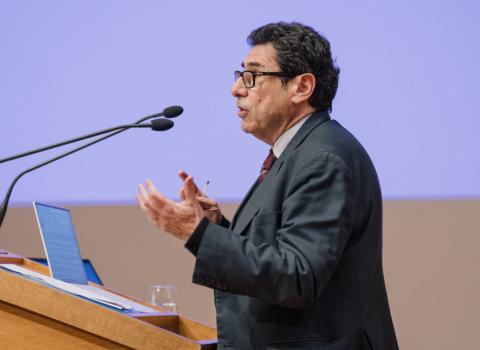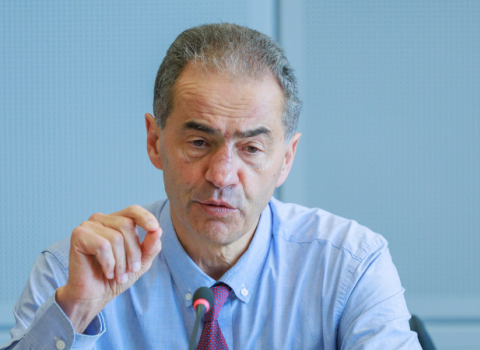The fall-out of the row over immigration between the EU and Switzerland is crystallised, with no grants going to researchers based in Swiss universities.
The winning proposals include research into combatting cancer-related inflammation, wearable electronic textiles powered by body heat, and a novel method of detecting bacteria by smell.
In this call, the distribution of winners across the three disciplines is as follows: life sciences 124, physical sciences and engineering 143, and social sciences 61.
The success rate for applicants to the ERC’s Starting grant programme, which targets researchers at the early stages of their careers, was around 10 per cent, a 1 per cent increase on 2013 results. The average age of the winners is about 35 years.
Women make up a third of the total. "I am encouraged to see the share of female grantees increase; it is going in the right direction,” said ERC President Jean-Pierre Bourguignon. This year’s increase of successful female applicants was 3 per cent, from 86 to 108.
There are 38 nationalities amongst the winning applicants. Top of the class is Germany, followed by France, Italy, Israel and Spain. Countries as far flung as Australia, China, the US and Chile are represented among the winners.
The EU Commissioner for Research, Innovation and Science, Carlos Moedas, complimented the winners. "To be at the forefront, Europe needs this gutsy mindset, and to invest in young talent,” he said.
The ERC had its kitty increased by 60 per cent last year, meaning it has a budget of €13 billion up to 2020.
2013 and 2014 results: a photo finish
A closer look at the results reveals much continuity with 2013. Last year, about three out of four ERC starting grants, 222 out of 300, went to researchers hosted by institutions in the UK, Germany, Israel, France, the Netherlands and Switzerland. It is almost a replica of this year’s distribution – the only difference is that Israel replaces Switzerland.
While the success rates of researchers applying with Swiss host institutions have been roughly twice as high as the European average, this year was different. In February, it was announced that Switzerland was barred from participation in ERC programmes, an indirect casualty of the high profile EU-Swiss spat on immigration. A recent compromise brings Switzerland back in from the cold and it will be allowed participate in future competitions.
ERC grants run for five years and as of December 2013, 318 ERC grant holders were based in Switzerland, of which 75 per cent were non-Swiss nationals.
Early stage funding
This first Starting Grant competition under Horizon 2020, the EU’s research programme, rewards researchers with up to €2 million, a very generous allocation compared to what the average postdoc earns, to set up research teams to carry out what the ERC calls “high-risk, high-gain research projects”.
To be eligible, a researcher must have completed a PhD between at least two and seven years prior to the publication of the competition and intend to conduct their research in a public or private research organisation located in one of the EU counties or associated countries.
It is expected applicants will have produced at least one important publication without the participation of their PhD supervisor.
The deadline for the next round of starting grants is 3 February 2015.
Press release here





 A unique international forum for public research organisations and companies to connect their external engagement with strategic interests around their R&D system.
A unique international forum for public research organisations and companies to connect their external engagement with strategic interests around their R&D system.